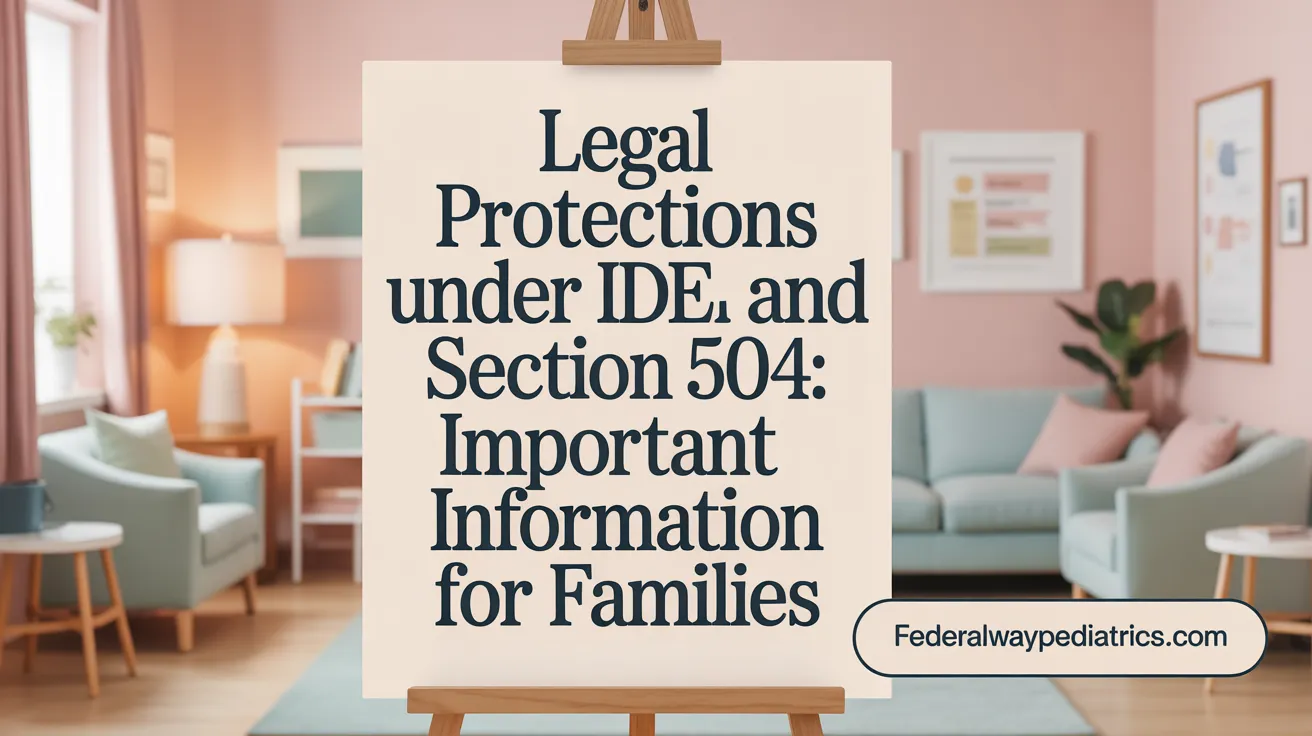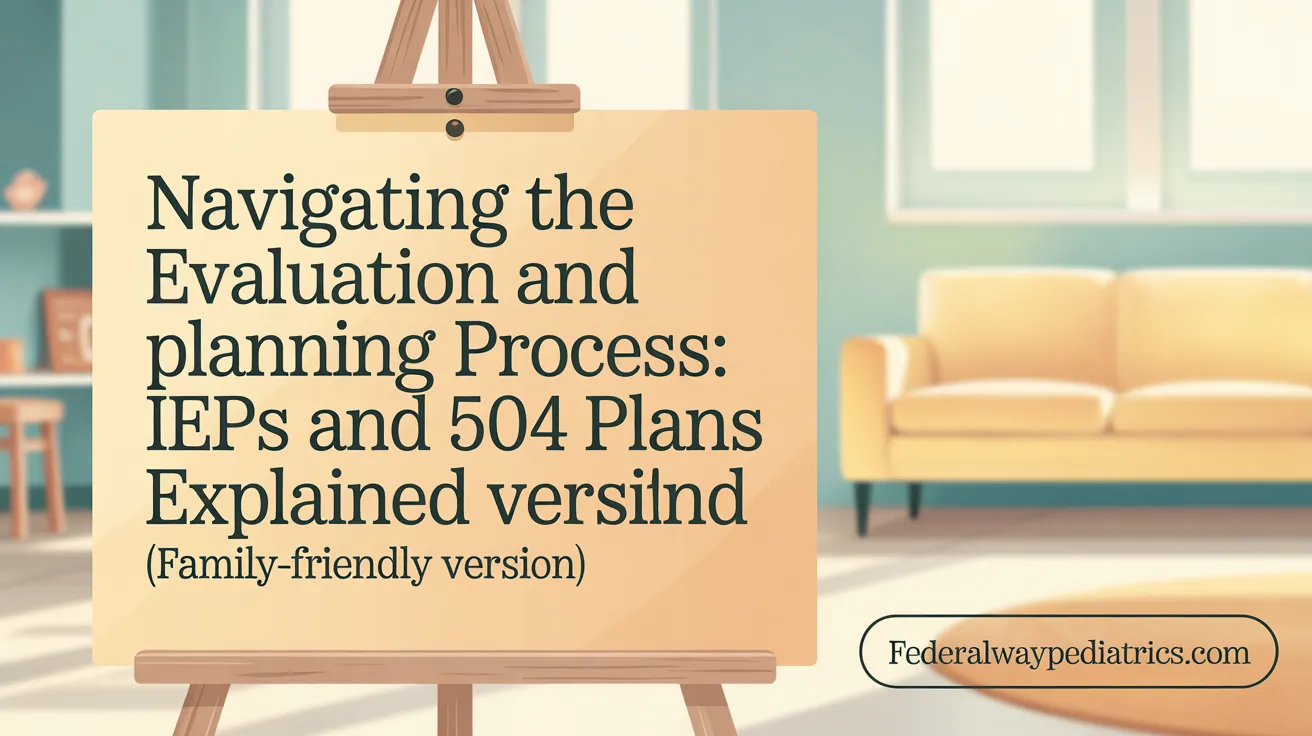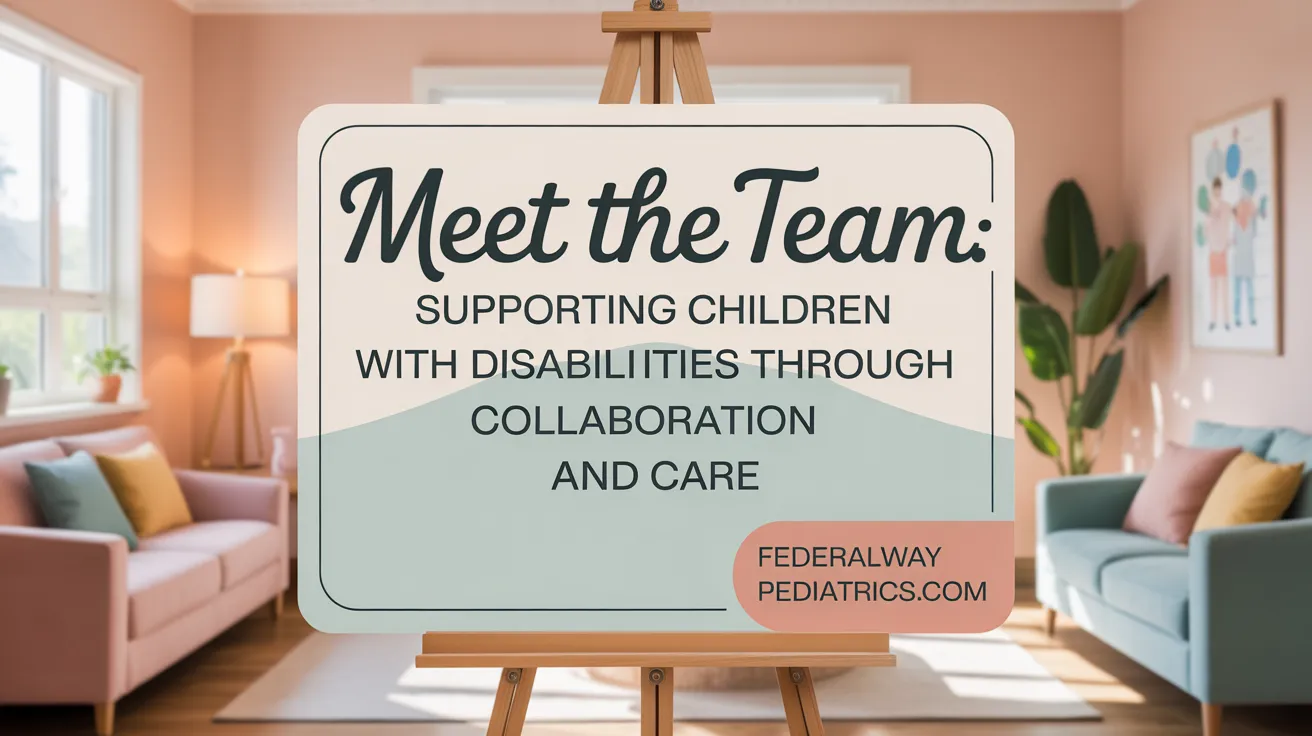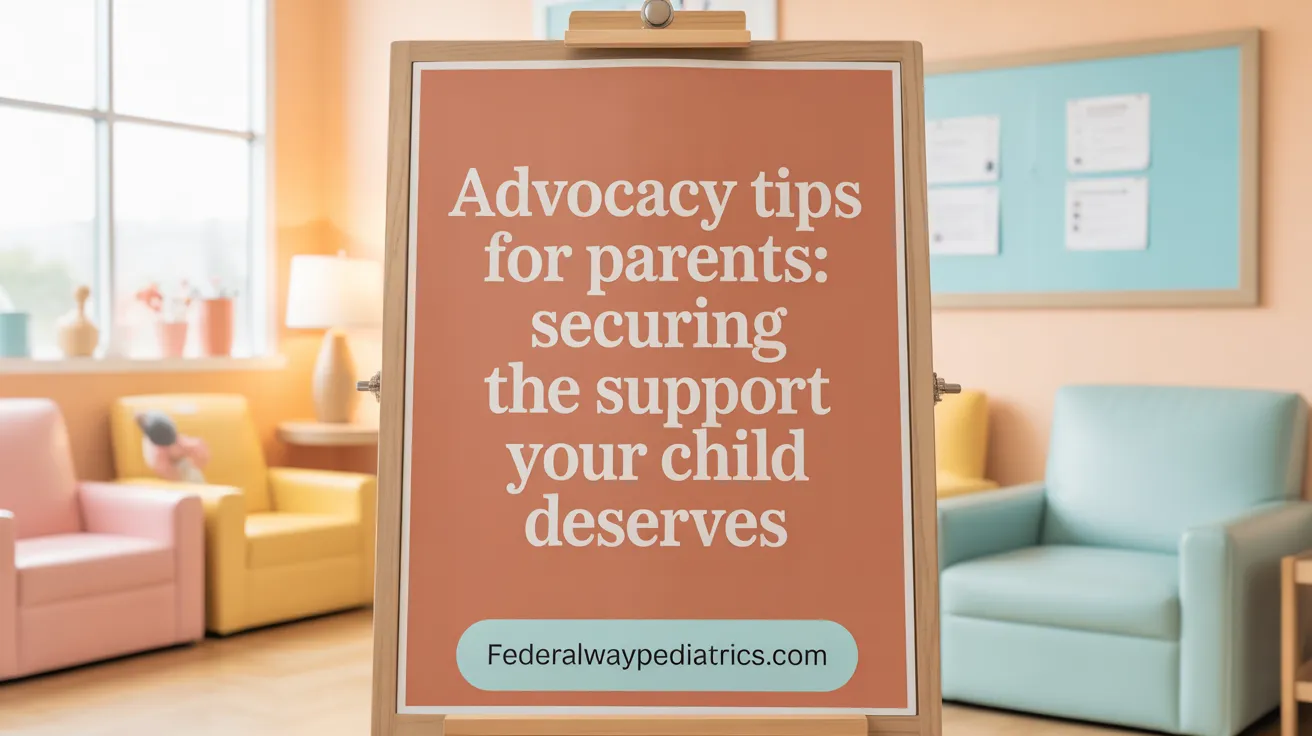Understanding the Landscape of Special Education
Navigating the complex landscape of school systems for children with disabilities can be overwhelming for many families. This article aims to demystify the legal protections, educational rights, and processes involved in securing appropriate support for disabled children. It will also guide parents and caregivers in advocacy, collaboration with schools, and leveraging community resources to ensure optimal educational experiences for their children.
Legal Rights and Protections Ensuring Educational Access

What are the legal rights and protections for children with disabilities in education?
Children with disabilities in the United States are safeguarded by essential federal laws such as the Individuals with Disabilities Education Act (IDEA) and Section 504 of the Rehabilitation Act of 1973. These laws serve to guarantee that eligible students receive a Free Appropriate Public Education (FAPE) tailored to their individual circumstances.
Under IDEA, schools are required to develop an Individualized Education Program (IEP) for students who qualify. The IEP outlines specific services, accommodations, and supports necessary to meet the child's educational needs, all implemented in the Least Restrictive Environment (LRE). This means children should learn alongside their non-disabled peers whenever possible.
Section 504 extends protections to a broader group of students, prohibiting discrimination and mandating reasonable accommodations for disabilities that substantially limit major life activities. These accommodations can include accessible classrooms, modified teaching materials, and assistive technologies.
Parents play a vital role in this process. They have the right to participate in evaluations, IEP meetings, and to be involved in the decision-making related to their child's education. If disagreements occur, families can pursue dispute resolution options such as mediation or filing a due process complaint.
Both laws aim not only to provide academic educational opportunities but also emphasize the importance of early intervention services for infants and young children. This proactive approach supports children’s development from an early age, emphasizing inclusive learning environments where children with disabilities can thrive alongside their peers.
Navigating Evaluations, IEPs, and 504 Plans

What is the process for obtaining educational evaluations and creating Individualized Education Programs (IEPs) or 504 plans?
The journey begins with a referral, either from parents or school staff, to identify if a child might need additional educational support. After the referral, parental consent is essential before moving forward. Once consent is given, a multidisciplinary team, which may include school psychologists, special educators, and speech-language pathologists, conducts a thorough assessment.
This evaluation is typically completed within 30 to 60 days, depending on state regulations. It involves various assessment tools—like tests of cognitive ability, academic achievement, behavioral observations, and language skills—ensuring they are culturally appropriate and fair for the child.
The results of these assessments help determine the child's eligibility for special education under the Individuals with Disabilities Education Act (IDEA). If deemed eligible, the team works collaboratively with the parents to develop an Individualized Education Program (IEP) or, in some cases, a Section 504 plan.
An IEP is a detailed, legally binding document that outlines the child's specific learning needs, goals, and the services they will receive in school. It includes accommodations, modifications, and supports tailored to the child's challenges. Once the IEP draft is ready, parental approval and consent are required before services start.
The IEP must be reviewed annually to update goals and services and reevaluated every three years to confirm ongoing eligibility and needs. This systematic process ensures children receive appropriate support, promoting their academic success and inclusive learning environment.
For more detailed guidance, searching for "Special education evaluation and IEP process" can provide additional resources and explanations.
Comprehensive Educational Services and Supports Available
What types of educational services and supports are typically available for children with disabilities?
Children with disabilities have access to a variety of educational services tailored to their specific needs. These supports include specialized instruction that adapts curriculum and teaching methods to help students succeed.
Therapies such as speech-language, occupational, and psychological services are commonly provided within the school setting. These therapies aim to address communication issues, motor skills, emotional regulation, and other developmental areas.
Assistive technology plays a vital role in enabling children to participate fully in learning. Devices like communication aids, visual schedules, and adaptive software support children with diverse needs.
Furthermore, schools implement accommodations and modifications documented in individual plans like IEPs (Individualized Education Program) and 504 plans. These include extended time on tests, altered assignments, or alternative assessments to ensure fair opportunities.
Early intervention services are crucial for children under age 3 with developmental delays. These include evaluations and support programs like IFSP (Individualized Family Support Plan), which focus on early developmental needs.
As children grow older and enter the school system, additional supports such as behavioral and social skills programs are often integrated to promote success both academically and socially.
Legal protections under laws like IDEA (Individuals with Disabilities Education Act) and Section 504 mandate that children with disabilities receive a free and appropriate public education (FAPE) in the least restrictive environment possible. This comprehensive approach ensures that families and educators have access to necessary resources, therapies, and accommodations to support each child's learning journey.
School Staff Roles and Collaborative Team Approaches

Who are the key school staff members involved in supporting children with disabilities, and how do they work as a team?
Supporting children with disabilities requires a team approach involving various school professionals. Key members include special education teachers, general education teachers, speech and occupational therapists, school psychologists, school nurses, administrators, paraprofessionals, related service providers, students, and often, the parents.
These team members work closely together through shared planning meetings, including the development and review of Individualized Education Programs (IEPs) and 504 plans. Regular communication is essential so each professional can coordinate supports and accommodations tailored to the child’s unique needs.
Special education teachers are responsible for adapting curricula, implementing special instruction, and facilitating inclusion by co-teaching in mainstream classrooms. Therapists and psychologists provide specialized assessments and interventions, addressing behavioral, speech, or emotional challenges.
School nurses play a vital role in health and safety, managing medical needs and emergency planning to ensure a safe learning environment. Administrators support the team by allocating resources, providing ongoing professional development, and fostering an inclusive school climate.
Ultimately, this interdisciplinary team functions as a cohesive unit, pooling their expertise to promote the child’s academic success, social development, and well-being.
Resources for understanding team roles:
| Organization | Focus Area | Additional Details |
|---|---|---|
| Council for Exceptional Children | Special Education Roles | In-depth descriptions of team member responsibilities |
| National Dissemination Center | School Team Collaboration | Strategies for effective communication and coordination |
| State Education Departments | Support Resources | Local support teams and professional development programs |
Understanding each professional’s role ensures that children receive comprehensive support and that teamwork is efficient and effective, providing them with the best educational experience.
Effective Advocacy Strategies for Parents and Caregivers

How can parents and caregivers advocate effectively for children with disabilities in educational settings?
Advocating for children with disabilities requires a well-informed, organized, and respectful approach. Parents should begin by understanding their child's legal rights, such as the right to a Free Appropriate Public Education (FAPE), accommodations under Section 504, and the protections offered through the Individuals with Disabilities Education Act (IDEA). Familiarity with policies and laws enables parents to navigate complex systems confidently.
Maintaining thorough documentation is crucial. This includes keeping copies of evaluations, assessment reports, communication with school staff, and notes from meetings. Organized records help track progress, identify concerns, and support advocacy efforts.
Preparation for meetings, like the Individualized Education Program (IEP) or 504 Plan discussions, involves reviewing all relevant documents ahead of time. Parents should set clear goals, formulate questions, and understand the purpose of each meeting. This proactive approach ensures meaningful participation.
Building respectful relationships with educators and administrators fosters a collaborative environment. Active listening, open communication, and a focus on shared goals help build trust. Parents should advocate not just for their child's needs but also support the professional staff working to serve them.
Effective advocacy also involves focusing on specific, achievable goals. Whether requesting additional services, modifications, or accommodations, clarity helps avoid misunderstandings. Parents should remain persistent yet respectful, advocating for necessary resources, qualified personnel, and appropriate placements.
External resources and legal avenues can reinforce advocacy. Organizations like Disability Legal Services of Indiana and Indiana Disability Rights offer legal assistance and guidance. When necessary, parents can pursue formal dispute resolution, such as mediation or due process hearings, to ensure their child's needs are met.
Broader community involvement and policy engagement can lead to systemic improvements. Participating in local advocacy groups, supporting legislation for special education funding, and establishing ongoing relationships with community leaders help create a supportive environment for all children with disabilities.
Finally, empowering children to develop self-advocacy skills fosters confidence and independence. Teaching children about their rights and involving them in discussions promote a positive self-image and resilience in navigating educational challenges.
In summary, effective advocacy combines legal knowledge, organization, respectful communication, strategic goal setting, community engagement, and support for the child's self-confidence. These elements work together to secure the educational supports children need to succeed.
Planning and Placement: Ensuring Appropriate Educational Settings
What factors should be considered when determining appropriate placement options for children with disabilities?
Choosing the right educational setting for a child with disabilities involves careful evaluation of multiple factors to promote effective learning and inclusion. First, the child’s individual needs, as detailed in the IEP, are central to the decision. This includes their specific disabilities, strengths, and learning goals.
Another critical aspect is the principle of the Least Restrictive Environment (LRE). This means placing the child in an educational setting that offers the most interaction with non-disabled peers while still meeting their unique needs. Ensuring that placement supports academic progress without unnecessary segregation is essential.
The team — which includes educators, specialists, and parents — reviews comprehensive data collected through assessments, observations, and reports. They also consider the potential harmful effects of a placement on the child's social-emotional development and learning.
Resource availability plays a vital role. This includes specialized supports, therapies, assistive technology, and qualified personnel necessary for the child's success. The goal is to choose a setting where the child can access the regular curriculum and participate in typical classroom activities as much as possible.
Placement options vary widely, from mainstream classrooms with supports and accommodations to specialized small-group classes, private schools, or even residential programs if needed.
This process involves balancing the child's current and future needs, ensuring legal compliance, and respecting parental preferences.
Ongoing review and communication are crucial. As the child develops or as their needs change, the IEP team revisits placement decisions to confirm continued appropriateness and effectiveness.
Range of placement options from general to specialized settings
| Placement Type | Description | Example Supports |
|---|---|---|
| General Education Classroom | For children who can participate with supports | Assistive technology, paraprofessionals |
| Resource Room | For students needing part-time specialized instruction | Small groups, specialized teachers |
| Self-Contained Classroom | For children requiring a highly structured setting | Intensive support, tailored curricula |
| Private School | Sometimes used if public options aren't suitable | Custom programs, specialized staff |
| Home Schooling & Dual Enrollment | For families choosing homeschooling or combining options | Flexibility tailored to child's needs |
The Role of the ARD or IEP Team
The Admission, Review, and Dismissal (ARD) team — or the IEP team — plays a central role in placement decisions. Comprising parents, teachers, school psychologists, and other specialists, this team gathers data, discusses options, and makes collaborative decisions aimed at best supporting the child's educational success.
Focus on Maintaining the Least Restrictive Environment (LRE)
A core principle in placement is ensuring the child's experience aligns with the LRE. The team strives to include children in regular classrooms whenever possible, supplementing with additional supports rather than removing them from mainstream settings.
The Importance of Reviewing Placement Regularly
Child development and needs can change over time. Therefore, the placement is reviewed periodically at IEP meetings. This allows the team to make adjustments, ensuring the setting remains suitable and effective.
Considering Alternatives: Private Schools and Homeschooling
Parents have options beyond public school placements. Private schools that specialize in disabilities or homeschooling are alternatives if public options are insufficient. In some cases, if a public school cannot meet the child's needs despite reasonable efforts, parents may seek tuition reimbursement for private placement.
Community Resources, Financial Supports, and Alternative Educational Options
What community resources and support networks are commonly available to assist families of children with disabilities in educational settings?
Families of children with disabilities have access to a broad range of community resources and support organizations that help navigate the educational landscape. Parent support groups and advocacy organizations are vital, providing emotional support, informational resources, and assistance in understanding legal rights and processes. Community resource centers and nonprofit agencies often collaborate with schools to offer guidance on IEP development, accommodations, and services.
Official programs under federal laws such as the IDEA offer comprehensive support, including free appropriate public education (FAPE), early intervention services, and legal advocacy. These programs also promote inclusion and individualized planning for children’s needs.
Financial resources play a significant role, especially for families with limited income. Programs like Supplemental Security Income (SSI) aid families financially for medical and living expenses related to disabilities.
Specialized services are available for military families, such as the Military OneSource program and the Exceptional Family Member Program (EFMP), which provide tailored resources and support. Moreover, national organizations like the Center for Parent Information and Resources (CPIR) serve as hubs for educational support, training, and up-to-date information.
All these resources aim to empower families and ensure that children with disabilities receive appropriate, inclusive educational opportunities while providing ongoing emotional and legal support.
Is it possible to receive financial support for homeschooling a child with special needs?
Yes, families can access financial assistance when homeschooling children with special needs, though such options depend on their location and individual circumstances. Many states provide funding through Educational Scholarship Accounts (ESAs), vouchers, or grants that can be used for homeschooling-related expenses such as curriculum materials, specialized therapies, or assistive technology.
Beyond state-specific programs, families may also qualify for federal assistance initiatives like Medicaid, which offers health-related services, or Supplemental Security Income (SSI), which provides income supplements for children with disabilities from low-income households.
Support organizations also offer resources and guidance. For example, the Home School Legal Defense Association (HSLDA) advocates for homeschooling rights and provides legal resources. Additionally, some states and nonprofits provide specific grants to support low-income families or those facing emergencies.
Parents interested in exploring financial support options should consult their local school district, state education agencies, and relevant nonprofit organizations to identify programs and funds applicable to their child's needs. Proper planning and application can make homeschooling a viable, supported option for many families.
Building a Partnership for Success in Special Education
Successfully navigating school systems for children with disabilities requires a comprehensive understanding of legal rights, educational processes, and available supports. Parents and caregivers are vital advocates who, together with skilled school teams, can ensure customized educational experiences that respect each child's unique needs. Leveraging community resources, maintaining open communication, and planning thoughtfully for placement and accommodations fosters environments where children with disabilities can thrive academically and socially. With informed advocacy and collaborative partnerships, families can empower their children to access meaningful, effective education and build a foundation for future independence.
References
- [PDF] Navigating the Special Education System | Child Care Answers
- Navigating the School System Effectively: Tips from Seasoned ...
- Navigating the Special Education System
- Navigating Disability in Schools: Stories Across the System
- Helping Families Navigate Systems: Special Education and SSI for ...
- School Services for Children with Special Needs: Know Your Rights
- Navigating The School System - Sprouted Sage
